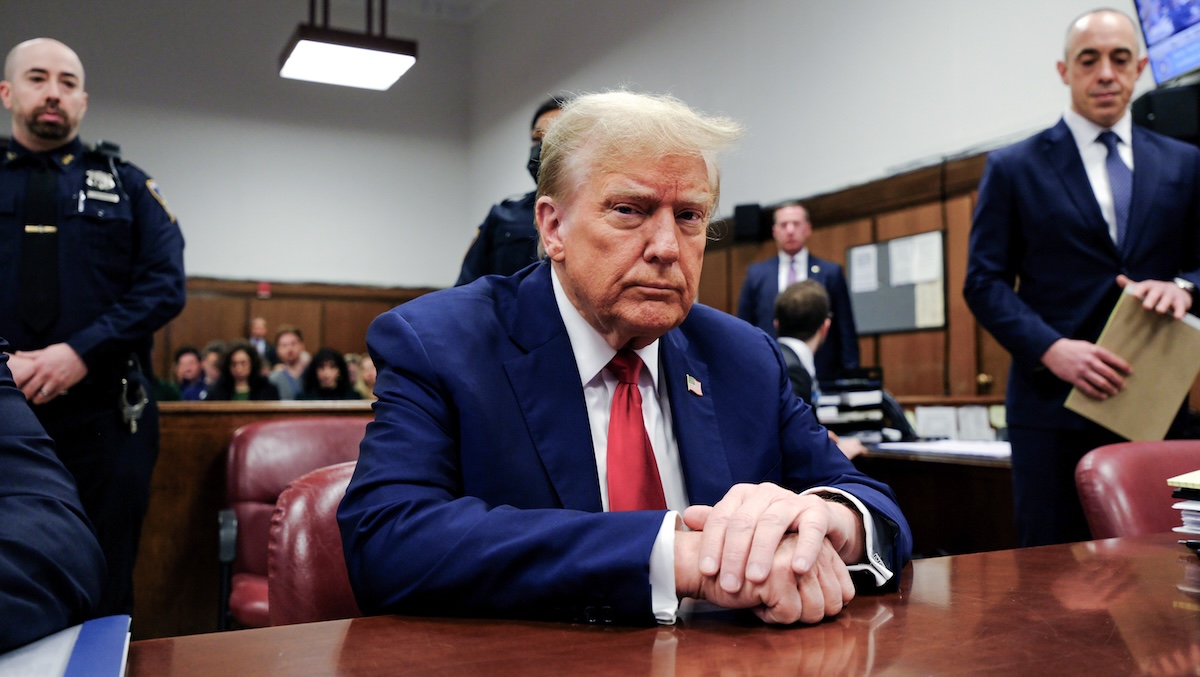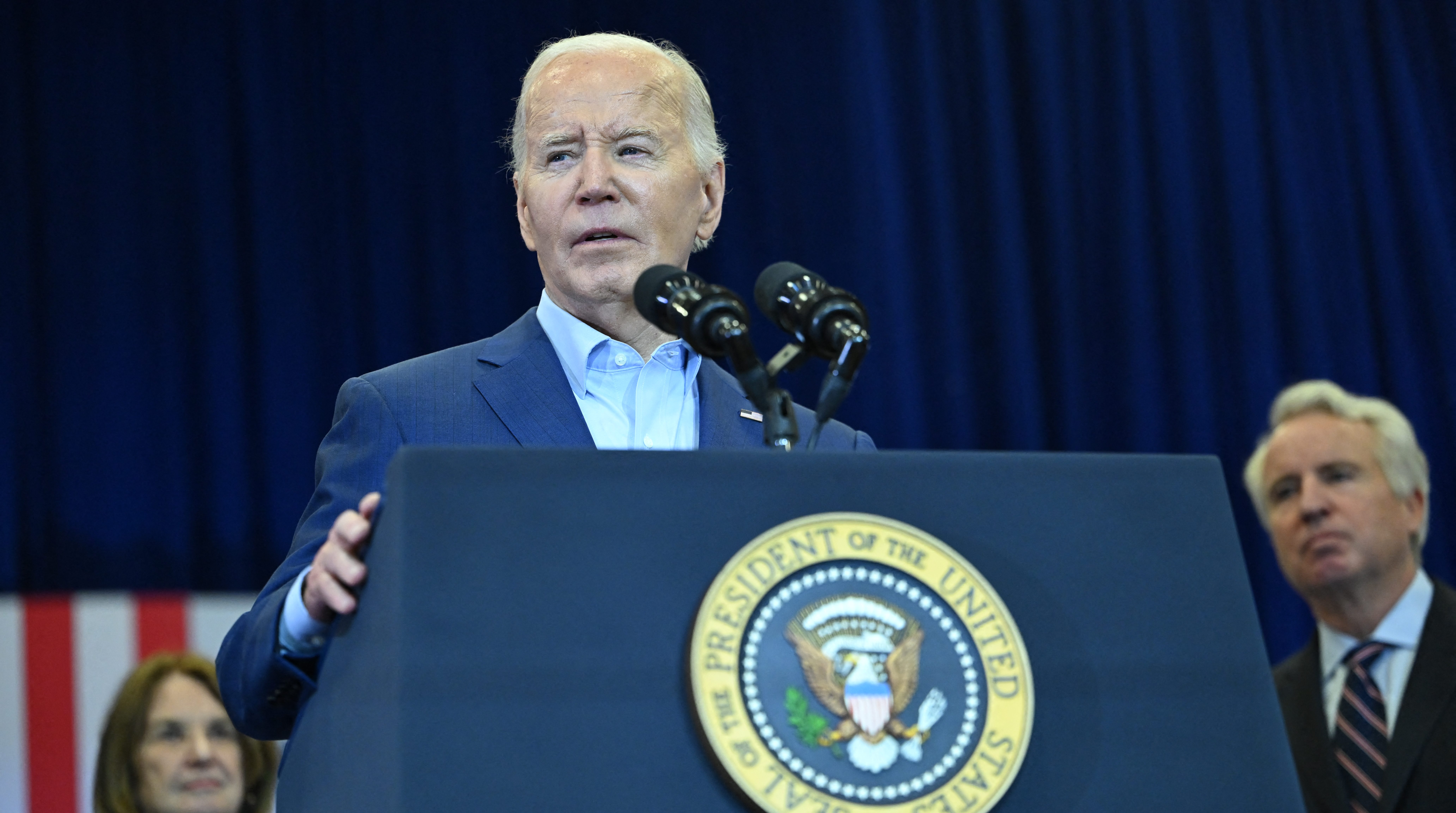(NECN: Jack Thurston, Montpelier, Vt.) - Gov. Peter Shumlin, D-Vt., signed into law new mandates on the labeling of food containing genetically modified organisms, or GMOs. By the summer of 2016, food products sold in Vermont must be labeled if they contain the ingredients. "We are pro-information," Shumlin told a large crowd of supporters that gathered on the lawn and steps of the Statehouse. "Vermont gets it right with this bill."
The vast majority of packaged food sold in the center aisles of grocery stores contains ingredients whose DNA was scientifically altered in labs, usually to improve efficiency. GMO advocates have argued the Food & Drug Administration has approved their use with no known health risks, and have said bio-technology helps feed more people and keep prices down.
"As we've said from the start, if we're going to label and go down that path, we would have much preferred to continue with the national uniform system as we do with everything else that's on the food package," said Jim Harrison of the Vermont Retail and Grocers Association.
Detractors of the method are deeply skeptical, believing existing safety research is insufficient, and claiming GMOs may harm the environment and pose threats to people who eat them. A passionate base of consumers has pushed for transparency on labels, often through grassroots organizations.
"The bill says nothing about the good or the bad of genetically engineered food," said Andrea Stander of the agriculture advocacy group Rural Vermont, a member of the Vermont Right to Know Coalition. "It simply says this is important information-- we need to know."
The president pro tem of the Vermont Senate said before the bill even passed, lawmakers had already heard threats from food producers promising to sue the state if this law was passed. Sen. John Campbell, D-Windsor County, told the large group lawmakers were undeterred from pursuing legislation many saw as important.
Campbell and Shumlin also said a legal defense fund is in place to help Vermont fend off lawsuits if any emerge. The site, which Shumlin said is accepting donations from donors all across the country and beyond, is FoodFightFundVT.org.
Politics
"There is no doubt that there are those who will work to derail this common sense legislation. But I believe this bill is the right thing to do and will gain momentum elsewhere after our action here in Vermont," said Gov. Shumlin in a written statement. "As you know, we're in the middle of an agricultural renaissance in Vermont because more and more Vermonters care about where their food comes from, what's in it, and who grew it. It makes sense that we are again leading the nation in this important step forward."
A vocal advocate for the law was the famous Vermont ice cream brand Ben & Jerry's. The company has pledged to go GMO free by this summer in the manufacturing of all its flavors. "Personally I don't think it's a major issue for brands who don't want to convert to just label. And I don't think people are going to get terrified by a label," Jostein Solheim, the CEO of Ben & Jerry's, told New England Cable News.
"Unfortunately, when labels are mandated to promote one product over another, as this one in Vermont, the additional cost burden is placed on the state's farmers, food manufacturers, grocers and consumers," warned Cathleen Enright of the Biotechnology Industry Organization in a prepared statement issued Thursday afternoon. "Economic studies have shown that such a program could needlessly increase food costs on the average household by as much as $400 per year."
The Ben & Jerry's CEO predicted the GMO labeling mandate will not have any effect on the price consumers pay for a pint of his ice cream. "So I don't see this as a big practical impact on business," Solheim said. "I think it's a really important first step to building a more transparent and sustainable agricultural system."
Maine and Connecticut have already passed GMO labeling laws, but those don't take effect until other states join them.
"This issue is one that should be discussed at a federal level instead of state by state," Bruce Krupke, Executive Vice President of the Northeast Dairy Foods Association, Inc. said in a written statement reacting to Gov. Shumlin's signing the bill into law. "There is already a federal bill that has been proposed. The Governor could have put a one-year moratorium on signing the Vermont bill so that any discussion on a national level has a chance to evolve. It would have shown leadership, especially given the potential for lawsuits and other repercussions, such as companies deciding not to sell to Vermont."
"The constitutionality of the GMO labelling law will undoubtedly be challenged," Attorney General Bill Sorrell, D-Vt., said in a written statement. "I can make no predictions or promises about how the courts will ultimately rule but I can promise that my office will mount a vigorous and zealous defense of the law that has so much support from Vermont consumers. I thank the Governor and the Legislature for ensuring we have the resources we need to get the job done."
Food producers who fail to comply with the new labeling requirements will face penalties and further action from the Vermont Attorney General's office, according to the administration of Gov. Shumlin.
For up-to-the-minute news and weather, be sure to follow us on Twitter and like us on Facebook.



